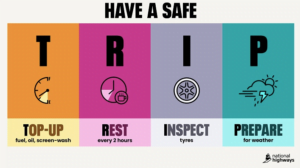Around one in six project managers who work in transport and logistics think the skills gap in their sector is either getting worse or not improving, a new survey by the Association for Project Management (APM), the chartered membership organisation for the project profession, has found.
Ahead of National Apprenticeship Week 2024 (February 5-11), APM surveyed over 1,000 project management professionals in several UK sectors including transport and logistics in the poll carried out by national research company Censuswide.
When asked if they thought the skills gap was getting better or worse in their sector, 16% of the transport and logistics project managers said it was either getting worse (10%) or staying the same (6%). Another 73% said it was getting better and 11% said there wasn’t a skills gap in their sector.
The skills gap is generally defined as the disparity between the skills that employers need or find desirable, and the skills possessed by employees or prospective workers, to meet job role demands. The term was coined in the late 1990s and multiple sectors have long raised concerns over the issue, exacerbated by globalisation, the pace of technological change, and specialised skillsets required.
Respondents who thought the skills gap was getting worse said long-term solutions to bridging the problem were through apprenticeship programmes and recruiting from other professions or sectors (selected by 40%). This was followed by on-the-job training, as well as additional training at college, university or apprenticeship level (both 34%), while 10% said ‘I don’t see the skills gap being bridged’.
Case study: Matthew Barnett, National Highways
Matthew Barnett, a Project Support Officer at National Highways where he completed a Level 4 Project Management apprenticeship, described his qualification as “amazing” and highly recommends the practical route for school and college leavers as a viable alternative to university.
“I chose an apprenticeship because I wanted to gain more than just a qualification – I wanted real life experience, as that’s where you really learn,” he said. “National Highways offered me a great opportunity to gain a qualification while learning alongside seasoned professionals which definitely helped me to succeed and win the National Highways National Apprentice of the Year 2023.”
Matthew, 20, was made aware of the apprenticeship by a teacher who knew of a former student who took the same path. However, he agreed there needs to be greater awareness of practical qualifications in schools and colleges.
“I’ve always felt more could have been done at school. They would touch on apprenticeships but never really go into detail about them. We were always advised to apply to university as this would provide the best opportunities. Looking back, I’m glad I didn’t follow the trend,” he said.
Matthew, who is working in the Major Project Directorate on the M2 Junction 5 Improvement scheme, added: “I would highly recommend apprenticeships. You gain recognised qualifications, you get paid instead of building university debt or paying for the qualification, you gain invaluable experience and a clear pathway to a career, and you learn from a network of professionals.
“My personal experience has been amazing and I want everyone to know how good apprenticeships are. I also recommend project management as a fulfilling career choice. I enjoy the problem solving in my role. There are so many variables within a project that there is always a risk of something going wrong. It’s my job to make sure we plan and execute projects to minimise any risk.”
Charlotte Allaway, 21, a Level 4 Project Management Apprentice at National Highways continues: “National Highways offered many different apprenticeships ranging from marketing, engineering, project management and to law. The project management apprenticeship appealed to me most as it comes with a variation of learning topics – risk management, procurement, leadership, communication and much more. It gives me the opportunity to explore, find what I enjoy doing most and better my knowledge.
“Project management is never the same; one day I could be doing a risk management plan to manage and mitigate the risks of my project and then next I could be communicating with my stakeholders, keeping them up to date with my project. I like how different it is compared to a job which is the same every day and project management can differentiate just like projects.”
Meanwhile, the APM survey found that 14% of project managers in transport and logistics said their organisation doesn’t run an apprenticeship programme for project professionals.
Professor Adam Boddison OBE, Chief Executive of APM, said: “For decades, the UK has been beset with skills shortages caused by many entrenched and complex reasons, from digital transformation to post-Covid effects, and it is alarming that around one in six project management professionals in the transport and logistics sector think the problem is either getting worse or staying the same in 2024, despite all the well-publicised and well-intended initiatives in recent years.
“This year’s theme for National Apprenticeship Week is ‘Skills for Life’ and employers should embrace a culture of constant upskilling and retraining, with artificial intelligence, e-commerce and automation transforming how we live and work at a rapidly increasing rate.
“And while it is positive to see many organisations investing in skills by offering apprenticeships, there is a sizeable minority who aren’t doing so currently. Apprenticeships are a fantastic way to help plug the skills gap since they blend a professional qualification with supported learning and development while in a full-time role. As the chartered body for the profession, APM champions greater professionalism in projects and driving a better understanding of the importance of the use of expert project professionals in project delivery.”
The survey also found that one in five (19%) project managers in transport and logistics believe there was not enough skilled project professionals to deliver projects successfully in their sector and region. Adaptability/Flexibility (60%) was the highest-rated option when respondents were asked to pick which skills are most needed, followed by communication, organisation and time management (all 30%).





















